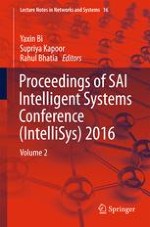2018 | OriginalPaper | Buchkapitel
Multi-resource Minority Games: Redefining the Game
verfasst von : Daniel Romero, Elissa Shinseki, S. M. Mahdi Seyednezhad, Ronaldo Menezes
Erschienen in: Proceedings of SAI Intelligent Systems Conference (IntelliSys) 2016
Aktivieren Sie unsere intelligente Suche, um passende Fachinhalte oder Patente zu finden.
Wählen Sie Textabschnitte aus um mit Künstlicher Intelligenz passenden Patente zu finden. powered by
Markieren Sie Textabschnitte, um KI-gestützt weitere passende Inhalte zu finden. powered by
